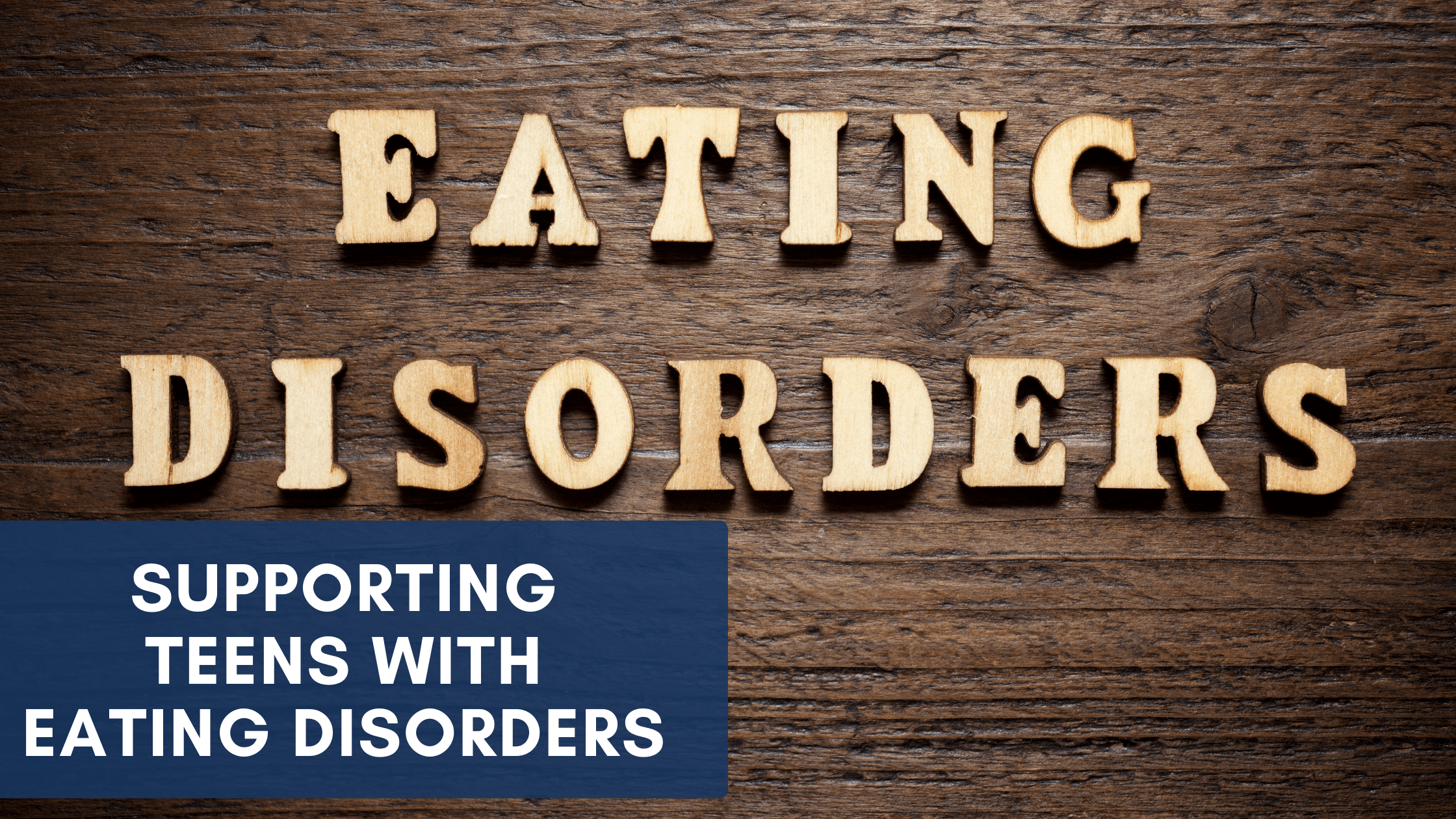
Supporting Teens with Eating Disorders: A Guide to Overcoming Challenges
Eating disorders among teenagers, has become a concerning issue in recent years. These disorders not only affect physical health, but also have a profound impact on mental and emotional well-being. As friends, parents, educators, and caregivers, it is crucial to understand the challenges that teen girls with eating disorders face and learn how to provide effective support.
Understanding Eating Disorders
Eating disorders are complex mental health conditions characterized by unhealthy eating habits, extreme preoccupation with body weight, shape, size, and often an irrational fear of gaining weight. Common eating disorders in teenagers include anorexia nervosa, bulimia nervosa, binge-eating disorder, and OSFED (Other Specified Feeding or Eating Disorder). Understanding the different types and their associated behaviors is essential to providing the right kind of support. Anorexia Nervosa is characterized by a relentless pursuit of extreme thinness, which leads individuals to restrict their food intake to dangerously low levels. Bulimia nervosa is recurrent episodes of excessive food consumption, often followed by compensatory behaviors such as self-induced vomiting, laxative use, or excessive exercise. Binge eating disorder involves consuming a large amount of food in a short period of time, often accompanied by a lack of control when it comes to overeating. Unlike bulimia, individuals with a binge eating disorder do not engage in compensatory behaviors like purging. OSFED is a category used to describe eating disorders that do not fit the strict criteria for anorexia nervosa, bulimia nervosa, or binge eating, but still have the patterns of an eating disorder.
Challenges Faced by Teens
Social Pressure
Today, teens face a multitude of challenges when it comes to dealing with eating disorders. One prominent issue is the relentless social pressure to conform to unrealistic beauty standards. This external pressure, combined with a strong desire for acceptance can significantly exacerbate the development and persistence of eating disorders, as young minds strive to meet unattainable ideals.
Body Image Disturbance
Furthermore, body image issues plague teens struggling with eating disorders. They often harbor distorted perceptions of their bodies, perceiving themselves as overweight even when they are, in fact, underweight. This distorted self-image can drive them towards extreme dieting and excessive exercise routines, taking a toll on their physical and mental health.
Isolation
Another formidable challenge is the isolation and stigma that surround these young individuals. Many teens struggling with eating disorders opt for isolation because they understand that their actions won’t be embraced, yet they are uncertain about how to deal with their challenges. The stigma attached to eating disorders often perpetuates this isolation, making it even harder for them to seek help and support. As a result, most teens end up concealing their behaviors from family and friends.
Health Risks
The health risks associated with eating disorders cannot be underestimated. These conditions can lead to severe consequences, including malnutrition, electrolyte imbalances, and damage to vital organs. Left untreated, these physical risks can become life-threatening, underscoring the urgency of early intervention and treatment. Eating disorders have the highest mortality rate of all psychiatric diagnoses, including major mental illnesses.
Adding to the complexity of the issue, eating disorders often co-occur with other mental health conditions such as depression, anxiety, and self-harm. This overlap of mental health challenges further complicates the path to recovery, necessitating a comprehensive and multidisciplinary approach to treatment.
Recognizing and addressing these challenges is crucial in providing the support and care needed for their journey towards recovery and well-being.
How to Help Teens Overcome Eating Disorders
Supporting a teenager through their journey with an eating disorder requires a thoughtful and multifaceted approach. Firstly, prioritize open and non-judgmental communication. Create a safe space where they can freely share their feelings, fears, and experiences without fear of criticism. Instead of offering quick fixes, lend a compassionate ear and express empathy.
Seeking professional help is paramount. Help the teen get connected with a healthcare specialist who is experienced in treating eating disorders. Recovery from an eating disorder is a complex process. It's not as straightforward as merely ceasing the behaviors. These actions often serve as a means of coping with deep internal distress, and represent an unhealthy and perilous way of addressing profound emotional pain. It's unrealistic to expect individuals with eating disorders to abruptly halt these behaviors. It typically takes a considerable amount of time and support to help them develop healthier coping strategies to replace their disordered eating patterns. Early on, healthcare providers play a crucial role in determining the appropriate form of care. Collaborating with other healthcare professionals becomes vital. An ideal approach to treatment involves a team consisting of a primary care physician, a counselor, and an exercise specialist with expertise in working with eating disorders. Be sure to highlight the importance of self-acceptance and self-esteem that go beyond physical appearance by directing attention to the teen’s strengths and talents that are unrelated to their bodies. Steer clear of negative comments about body size or weight, reinforcing a healthier perspective. Patience is crucial throughout the recovery process. Recognize that healing from an eating disorder is a long and challenging journey.
In many cases, eating disorders are intertwined with family dynamics. Involving the family in therapy or support can be essential for long-term recovery, addressing underlying issues that may contribute to the disorder. Monitor the teen’s progress, but do so in a non-invasive manner. Celebrate small victories and offer unwavering support during setbacks, reinforcing your commitment to their well-being. Help the teen find healthier coping mechanisms for stress and emotions. Encourage them to engage in enjoyable activities and explore relaxation techniques that provide solace without harming their health.
Lastly, avoid criticism and arguments about food and eating behaviors. This will only make the problems worse. Promote a balanced diet, encourage nutritious choices, and consider consulting with a dietitian who specializes in eating disorders to ensure a healthy approach to nourishment. By implementing these strategies, you can play a vital role in supporting a teenager on their path to recovery and well-being.
